Are You Home Schooling Your Kids? Don’t Forget Sex Education.
Sex education is education—and if you’re braving math, science, and history to help your kid with their lessons, you should do the same for sex ed.
![[Photo: A Black father and son do homework together.]](https://rewirenewsgroup.com/wp-content/uploads/2020/03/homeschooling-800x533.jpg)
For more sex education resources during the COVID-19 outbreak, check out our Better Sex Ed guide.
When schools across the country closed in response to COVID-19 concerns, parents and caregivers expressed relief that their kids would be staying home and be just a bit safer. But it wasn’t long before worry set in: “How am I going to get any work done while my children are home? Who is going to watch them? Do I have to teach them geometry? Do I even know geometry?”
The switch to virtual learning or home schooling may be overwhelming (if you even have the option of staying home to facilitate it), and, yes you might have to brush up on your geometry or U.S. history, but while you plan out your kids’ days and learning sessions, don’t forget to pencil in some time for sex education—no matter their age.
It’s normal to feel nervous about talking to your kids about sex and relationships. But sex education is education—and if you’re braving math, science, and history to help your kid with their studies, you should do the same for sex ed. Sex education is more than telling your kids about their reproductive organs—it teaches a set of life skills that include navigating relationships, advocating for your boundaries, and effective communication, in addition to reproductive and sexual health. And there is an abundance of resources to guide you on this journey.
This month, the Future of Sex Education Initiative (FoSE), a collaboration between Advocates for Youth, Answer, and SIECUS: Sex Ed for Social Change, released an updated set of standards for sex education in the United States. The standards are for educators to better teach their students about relationships, consent, autonomy, and sex, but they can help you, too.
If you need additional resources or want to assign some reading, here are ten books to help you teach your kids about sex, healthy relationships, communication, and more.
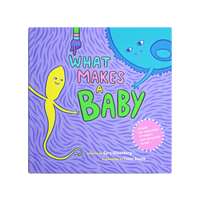 What Makes a Baby (Seven Stories Press)
What Makes a Baby (Seven Stories Press)
Ideal for: Ages 3 to 7
Author and sex educator Cory Silverberg’s books are on this list twice, and on valid grounds: His work is playful, straightforward, and inclusive, and Fiona Smyth’s illustrations are colorful and engaging. Silverberg’s work also doesn’t make assumptions about gender and body parts—it explains reproduction using gender-free language.
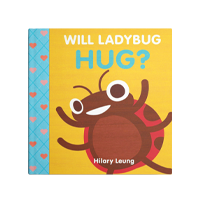 Will Ladybug Hug? (Seven Stories Press)
Will Ladybug Hug? (Seven Stories Press)
Ideal for: Ages 3 to 5
It’s never too early to start teaching kids about consent, boundaries, and respecting others. Consent isn’t just about our sexual experiences—it’s present in nearly every aspect of our lives. Author and illustrator Hilary Leung helps young children understand boundaries and that our friends’ boundaries are different from our own. Will Ladybug Hug? is a board book, so if your kid is still in the phase where they love tearing paper, this might be a good option for you.
 Sex Is a Funny Word: A Book About Bodies, Feelings, and YOU (Seven Stories Press)
Sex Is a Funny Word: A Book About Bodies, Feelings, and YOU (Seven Stories Press)
Ideal for: Ages 8 to 10
Silverberg’s second book on our list is for older children, a natural progression in your child’s reading growth. Sex Is a Funny Word is designed like a graphic novel, and like What Makes a Baby, it uses gender-free, straightforward language. It also includes illustrations (also by Smyth) of body parts and a crucial section to explain to young people why abuse is bad. The book is written to help facilitate conversations between children and their caregivers.
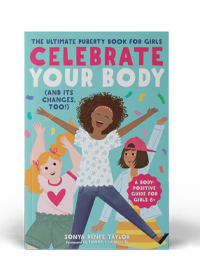 Celebrate Your Body (and Its Changes, Too!): The Ultimate Puberty Book for Girls (Rockridge Press)
Celebrate Your Body (and Its Changes, Too!): The Ultimate Puberty Book for Girls (Rockridge Press)
Ideal for: Ages 8 to 12
Author Sonya Renee Taylor is the founder of The Body Is Not an Apology, a media platform and international movement dedicated to radical self-love and body empowerment. Taylor’s book, Celebrate Your Body, has the same mission. According to the National Eating Disorders Association, 89 percent of girls have dieted by age 17. Taylor’s book, written primarily for cisgender girls, works to take the shame out of the changes that happen to your body during and after puberty.
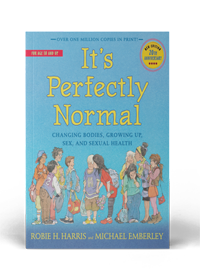 It’s Perfectly Normal: Changing Bodies, Growing Up, Sex, and Sexual Health (Candlewick Press)
It’s Perfectly Normal: Changing Bodies, Growing Up, Sex, and Sexual Health (Candlewick Press)
Ideal for: Ages 10 and over
Written by children’s book author Robie H. Harris, It’s Perfectly Normal is considered a classic in sex education circles because of its simple illustrations and body-positive language. Much of the book focuses on bodies and how they develop through puberty, and it includes illustrations of naked people to describe body parts and show body diversity. If you want to help your kid feel a little bit more comfortable as puberty begins, this book is a great place to start.
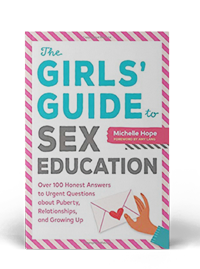 The Girls’ Guide to Sex Education: Over 100 Honest Answers to Urgent Questions About Puberty, Relationships, and Growing Up (Castillo Media)
The Girls’ Guide to Sex Education: Over 100 Honest Answers to Urgent Questions About Puberty, Relationships, and Growing Up (Castillo Media)
Ideal for: Ages 10 to 13
When young people have questions about their bodies, they often start with just that: a question. That’s why sexologist Michelle Hope’s book, The Girls’ Guide to Sex Education, is formatted as a Q&A. Each answer is straightforward and less than a page, so readers get a quick overview rather than an in-depth analysis of each topic. The introduction directly addresses that some parts of the book will primarily be relevant to cisgender girls while other parts of the book are relevant to children of any gender.
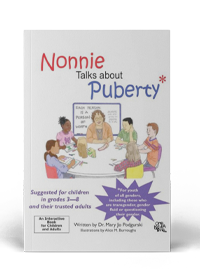 Nonnie Talks About Puberty (Createspace Independent Publishing Platform)
Nonnie Talks About Puberty (Createspace Independent Publishing Platform)
Ideal for: Ages 10 to 14
Nonnie Talks About Puberty, but Nonnie also talks about other topics. Mary Jo Podgurski, founder and president of the Academy for Adolescent Health, which provides in-school sexuality education and mentoring in the Pittsburgh area, is the creator of the Nonni Talks series. Her books cover difficult topics like death, consent, and race. Nonnie Talks About Puberty is a narrative intermixed with questions, definitions, and illustrations. Readers can follow along with the story and then turn to the glossary to get clarification on terms that might be new to them, like “tampons” or “period.”
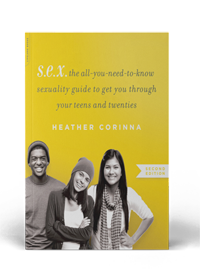 S.E.X.: The All-You-Need-to-Know Sexuality Guide to Get You Through Your Teens and Twenties (Hachette Books)
S.E.X.: The All-You-Need-to-Know Sexuality Guide to Get You Through Your Teens and Twenties (Hachette Books)
Ideal for: Teens
Author, educator, and activist Heather Corinna is the creator of Scarleteen, a website that since 1998 has provided honest sex education to questions young people ask. The second edition of S.E.X. is a similarly useful resource. The table of contents alone is six pages, but for good reason—each lesson is broken down encyclopedia-style. While this guide may be designed for teens, it contains information that adults would find useful, too, like what to expect during an abortion and the basics of bystander intervention. S.E.X. is for teenagers of any gender and sexual orientation.
 Dating and Sex: A Guide for the 21st Century Teen Boy (American Psychological Association)
Dating and Sex: A Guide for the 21st Century Teen Boy (American Psychological Association)
Ideal for: Teenage boys
Andrew Smiler is a therapist on a mission to help men and boys better understand themselves and communicate with others. In Dating and Sex: A Guide for the 21st Century Teen Boy, Smiler addresses masculinity myths and questions he has encountered in his practice. The book starts off with quick answers to some frequently asked questions before diving into bigger topics, like dating, consent, and gender roles.
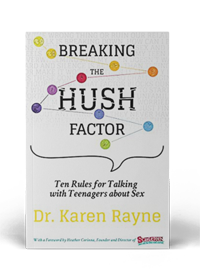 Breaking the Hush Factor: Ten Rules for Talking With Teenagers About Sex (Impetus Books)
Breaking the Hush Factor: Ten Rules for Talking With Teenagers About Sex (Impetus Books)
Ideal for: Caregivers
OK, this book isn’t for your kid. It’s for you. Before you start talking to your kid about sex—maybe for the first time or the 30th time—you should be prepared to have some feelings of your own. You may have worried to yourself, “What if I ruin my kid by talking about this all wrong?” That’s why sexuality educator Karen Rayne wrote this book. Breaking the Hush Factor is a quick read to help you approach conversations about sex and sexuality with a little more confidence than you had before.
